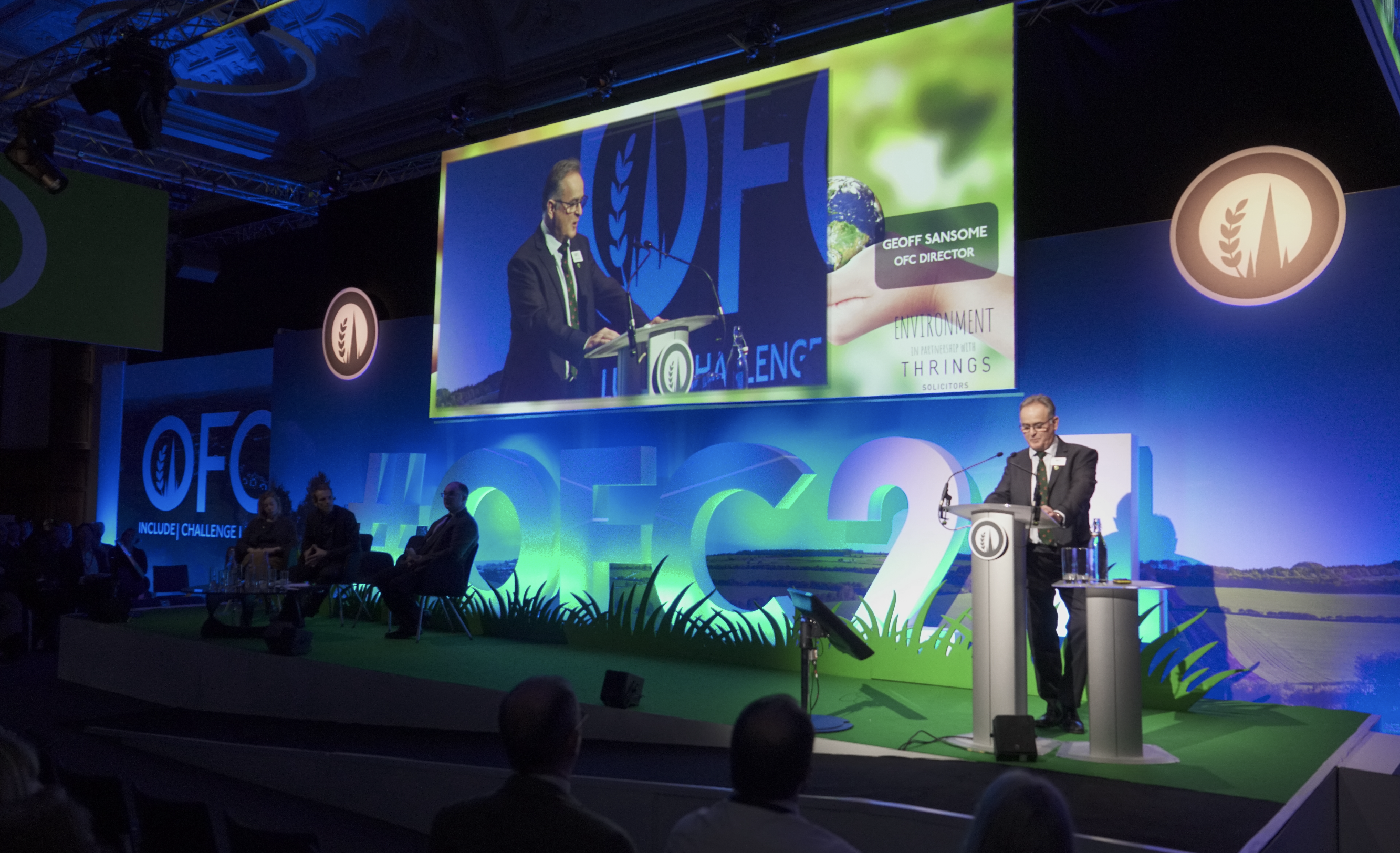When Geoff Sansome takes to the stage as chair of the 2025 Oxford Farming Conference it will be 31 years since he first attended the event.
He clearly remembers first setting foot into the hallowed halls of the famous university buildings; it was 1994 and he was invited as a thank you from the company he was working for after enduring some “pretty desperate” conditions while training agronomists on a state farm in Russia.
“Back then I was in my 30s and the youngest by at least 20 years,” recalls Geoff. “There was no other way to describe it other than something of an old boys’ club.
“Historically, the Oxford Farming Conference fell into a category of events that had a certain arrogance about them. Now, as an industry, agriculture more than ever needs to reach out to the public; they are our customers and our farming support schemes are paid for from the public purse.”
He applauds previous chairs for bringing the annual gathering – sometimes kicking and screaming – into the 21st century and for his tenure he has chosen the theme Facing change, finding opportunity.
“Be it post Brexit, the shift from the Basic Payment Scheme, or the fact we will have had a general election, along with ongoing global conflicts and challenges like climate, I have never known such a time of change facing farming,” explains Geoff, who together with his wife Ann still runs the 100-acre farm he grew up on, under the discerning but supportive guidance of his 95 year-old father!
“However, this massive period of change also brings opportunities. There are huge advances in science and a whole new generation of people involved in agriculture who are not carrying any of the baggage of the past, and are prepared to get stuck in.”
Geoff, 63, studied agriculture at Bangor University and started his career as a trainee agricultural advisor with ADAS, and has recently retired from his post as Head of Agriculture at Natural England.
He is the first to admit that at the beginning of his career, specialising in agronomy and research into cereals and oilseed rape herbicides, his role was all about “encouraging food production at any cost.” A trip to train agronomists in Slovakia in 1992 led to the next ten years in Russia, Ukraine and many other former Soviet Union countries and the Balkans, working on agricultural transformation programs with ADAS International.
“Of course, my time in Ukraine means I have followed with huge admiration the UK farmers who have been helping their counterparts out there, raising funds, sending generators and driving over pickups to help struggling farmers,” says Geoff. “The war gives some perspective to the day to day challenges we are faced with in farming in the UK. Even out of some of the most awful change – such as the situation in Ukraine – there are opportunities to learn, putting the problems in our own farming lives into perspective. On a personal note, it’s so heartening to see the Agricultural Advisory service I helped create in Ukraine all those years ago going from strength to strength.”
Geoff returned home to the UK to play his part in helping the farming community recover from the Foot and Mouth outbreak of 2001, with Defra’s Rural Development Service (which went on to become Natural England in 2006) and somehow found time in 2004 to fit in a Nuffield Farming Scholarship, focusing on ”Facilitating Rural Development” which included a fascinating insight into first nation issues in North America.
The Farming Community Network has a place in Geoff’s heart, having volunteered for the charity for the last 12 years. Geoff and his wife Ann have three grown-up children – Hannah is a priest, John is a farm manager, and their youngest son George is a professional folk musician.
“I think right there, in the diversity of what our three children have gone on to do in their own lives, is a snapshot of the modern farming family, where diversity, ambition and personal callings should be first and foremost” says Geoff, who farms in Worcestershire, where his family have worked the land for over 200 years.
“My earliest memories are of being left on a blanket in the field corner while my parents picked peas and runner beans along with 30 or so casual workers. It’s so interesting to look back and think that the farm my parents started out on as fourth-generation tenants and worked all hours to eventually be able to buy, used to have three or four full-time employees. Now my wife and I manage to run it pretty much on evenings and weekends. I have huge empathy and respect for farmers. Wherever my career has taken me I have always cherished my farming roots and experience.
“It’s a huge honour to be OFC 2025 chair. I am already enjoying talking to speakers. I am also looking forward to those lightbulb moments that delegates will have, when they learn something new, meet inspiring people and are inspired to look at things through a different lens.
“The conference has evolved tremendously yet has managed to retain what makes it valuable, such as networking and challenging people’s thinking. I always find when it’s held, in January, is a naturally forward-looking time of year – people are in the right mood for facing change and finding opportunity…”
The Oxford Farming Conference will take place from January 8th to 10th 2025.

